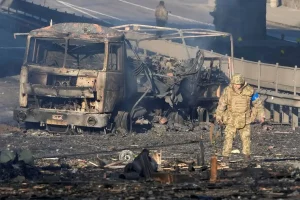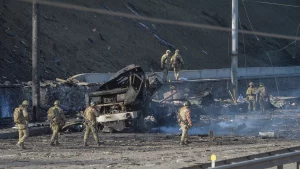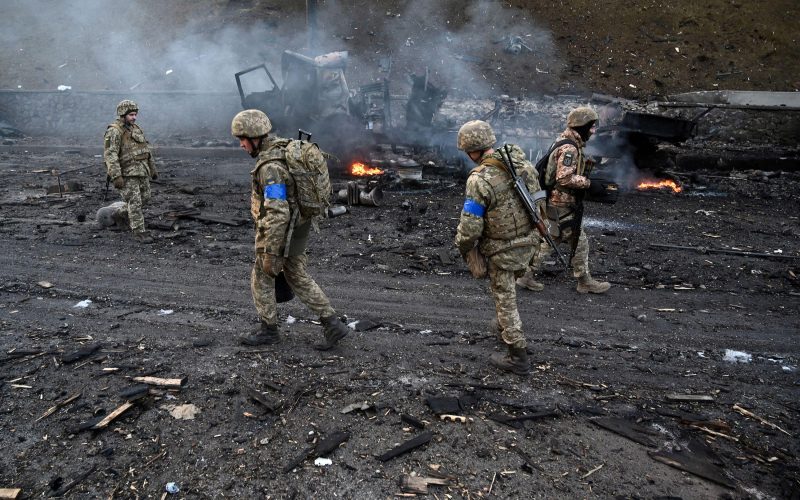Global Condemnation and Sanctions

The international community has largely unified in its condemnation of the war in Ukraine, presenting a cohesive stance against the aggression. Nations across the globe have voiced their opposition to the conflict, emphasizing the importance of sovereignty and territorial integrity. This unified stance underscores the collective disapproval of the actions that have led to the war, highlighting a global consensus that such aggression is unacceptable and must be addressed with urgency and resolve.
In response to the war in Ukraine, a series of economic sanctions have been implemented to isolate the aggressors. These measures are designed to exert financial pressure and limit the economic capabilities of those responsible for the conflict. By targeting key sectors such as finance, energy, and defense, the sanctions aim to disrupt the economic stability of the aggressors, thereby reducing their ability to sustain the war effort. The coordinated approach to sanctions reflects a strategic effort to leverage economic tools in the pursuit of peace and stability.
NATO’s Strategic Response
NATO has undertaken a strategic response to the war in Ukraine, significantly enhancing its defense posture. This includes the deployment of additional troops and military assets to member states in Eastern Europe, as well as increased surveillance and reconnaissance operations. The enhanced defense posture is intended to deter further aggression and reassure member states of NATO’s commitment to their security. By bolstering its defensive capabilities, NATO aims to prevent the conflict from escalating and to protect the territorial integrity of its member nations.
In addition to strengthening its defense posture, NATO has also increased military aid to Ukraine. This support includes the provision of advanced weaponry, intelligence sharing, and training for Ukrainian forces. The increased military aid is a critical component of NATO’s strategy to support Ukraine’s defense efforts and enhance its ability to resist aggression. By providing tangible support, NATO demonstrates its commitment to assisting Ukraine in its fight for sovereignty and territorial integrity.
European Union’s Unified Stance
The European Union has taken a strong stance in condemning the war in Ukraine, unequivocally denouncing the aggression and calling for an immediate cessation of hostilities. The EU’s condemnation is rooted in its principles of peace, democracy, and respect for international law. By voicing its strong opposition to the conflict, the EU aims to galvanize international support for Ukraine and to underscore the importance of upholding the rules-based international order.
In response to the war, the European Union has implemented unified sanctions against Russia. These sanctions target key sectors of the Russian economy, including finance, energy, and defense, with the aim of exerting economic pressure and curbing the aggressor’s ability to sustain the conflict. The unified approach to sanctions reflects the EU’s commitment to a coordinated and effective response, leveraging its collective economic power to promote peace and stability in the region.
China’s Diplomatic Maneuvering
China has adopted a neutral stance on the war in Ukraine, refraining from taking sides in the conflict. This diplomatic maneuvering reflects China’s broader foreign policy approach, which emphasizes non-interference in the internal affairs of other nations. By maintaining neutrality, China seeks to position itself as a potential mediator and to preserve its strategic interests in the region.
Despite its neutral stance, China has called for a peaceful resolution to the war in Ukraine. Chinese officials have emphasized the importance of dialogue and negotiation, urging all parties to seek a diplomatic solution to the conflict. China’s call for peace underscores its commitment to stability and its desire to prevent further escalation of the war. By advocating for a peaceful resolution, China aims to contribute to international efforts to end the conflict and restore stability in the region.
Humanitarian Aid and Refugee Assistance
The global community has rallied to provide humanitarian aid in response to the war in Ukraine. Numerous countries and international organizations have mobilized resources to address the urgent needs of those affected by the conflict. This support includes the provision of food, medical supplies, and shelter, as well as efforts to ensure the safety and well-being of vulnerable populations. The global response reflects a shared commitment to alleviating human suffering and to supporting those impacted by the war.
The war in Ukraine has led to a significant increase in refugee assistance, as millions of people have been displaced by the conflict. Countries around the world have opened their borders and provided refuge to those fleeing the violence. International organizations have also stepped up their efforts to support refugees, offering assistance with housing, healthcare, and integration into host communities. The increased refugee assistance highlights the global solidarity with the Ukrainian people and the collective effort to provide a safe haven for those in need.
Impact on Global Markets

The war in Ukraine has had a profound impact on global markets, disrupting supply chains and causing significant economic uncertainty. Key industries, including agriculture, energy, and manufacturing, have been affected by the conflict, leading to shortages and delays in the production and distribution of goods. The disruption of global supply chains has had a ripple effect on economies around the world, highlighting the interconnectedness of the global market and the far-reaching consequences of regional conflicts.
International sanctions imposed in response to the war have also impacted global commodity prices, particularly in the energy and agricultural sectors. The restrictions on trade and financial transactions have led to volatility in markets, with prices for oil, gas, and grain experiencing significant fluctuations. The impact on commodity prices underscores the economic ramifications of the conflict and the challenges faced by policymakers in managing the global economic fallout. The international community continues to monitor and respond to these developments, seeking to mitigate the economic impact and promote stability in global markets.










